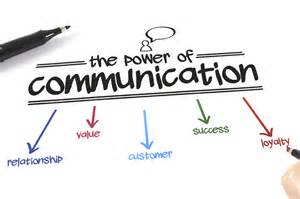The Communication Imperative (part 1)

2016 was a good year – lots of progress and some light at the end of the tunnel with respect to getting construction underway on constructing the National Museum of African American Music. Maybe, it seems, our team’s hard work is beginning to pay off.
Last year also had its challenges. For example, I expect that the growth in our team’s workload will continue to outpace the growth in our staff, and since we all work harder than we should, sustainability and self-preservation requires that we find ways to be more efficient and effective with the same hours and energy.
One way to do that is to communicate better with one another. This became crystal clear to me towards the end of last year as we worked through some local political and community concerns. I recall coming out of a meeting with our board chair saying, “we need communications help right now!” Boy was I right. The next six weeks turned into what I disaffectionatly termed a “cluster of poor communication.”
People wanted things from one another that they hadn’t communicated. Others insisted that their point of view
be heard, while not bothering to understand someone else’s. Some jumped in to help without asking where help was needed – and made things worse.
Still others assumed that some meant us harm without so much as a conversation to clarify interest or intent. These are all classic communications “shortcuts” that can cause mistakes, waste time and cost money. In this case, I know that it caused hundreds of thousands of dollars in expense and multiples of that in poorly used man-hours.
So, I am focusing at least the early part of this year on being a better communicator, and I encourage you to join me. The NMAAM team is getting some professional help with this, but I will also use DBTE to send out a note from time to time to encourage you to think about how well you are communicating and maybe a suggestion or two about getting better.
Following are the first two. Let me know what you think.

- Multi-tasking is a lie! We all do it to some degree, but we must admit that it is rarely as effective as we hope it will be. The truth is, if you hope to get things done correctly the first time, and if you want to be certain that you listened well or spoke clearly then multi-tasking won’t work.At work, as busy as we all are, we often believe that multi-tasking is the only way to get it all done. There’s too much to do, and not enough hours in the day! However, if something is important enough to schedule a meeting to discuss, isn’t it worth
giving the topic your full attention? Multi-tasking is a lie. - Slow down to go faster.This oxymoron often proves to be true, particularly as it relates to
communicating. There’s a lot going on, the schedule is full, there are several people involved and you’ve got multiple deadlines coming at you quickly. Slow down.Continuing to move quickly risks poor communication. Your colleagues don’t know what you need or what you expect… you aren’t clear on the assignment… you zig and your teammate zags… Slow down.
Make a few minutes to have a clear conversation. Check for understanding and agreement. Take a few notes, date them and add a topic or category so they are easy to find later. Being clear on delivery, timing and the role that you are expected to play may seem to come at a cost, but that price is much less than the cost of getting it wrong, missing the mark, having to do the work again or delaying completion. Sometimes slowing down is the most effective way to go faster.
series to be continued…
